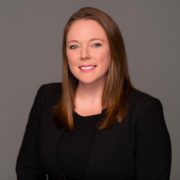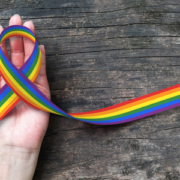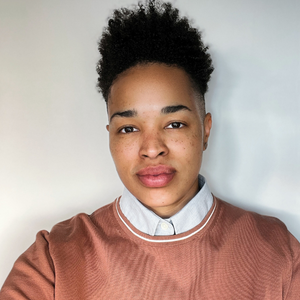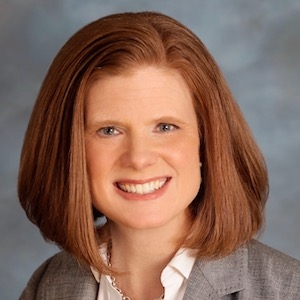Erika Karp: Chief Impact Officer, Pathstone
 “I think that capitalism has the potential to be exceptionally productive. That said, we’ve messed it up. We’ve distorted it, and it has become a system that is extractive and exclusive,” says Erika Karp. “I think that’s really unfortunate. I want to be a part of a system that is regenerative and inclusive, and I still believe capitalism can be.”
“I think that capitalism has the potential to be exceptionally productive. That said, we’ve messed it up. We’ve distorted it, and it has become a system that is extractive and exclusive,” says Erika Karp. “I think that’s really unfortunate. I want to be a part of a system that is regenerative and inclusive, and I still believe capitalism can be.”
Karp speaks to a childhood love for economics, why ESG takes the ideology out of sustainable investment and being the first out lesbian on her firm’s Wall Street trading floor.
From the Lemonade Stand to the Trading Room
Karp knew from when she was a child that she loved and wanted to be involved in trading and economics.
“While we don’t think about it that way, trading is part of human nature. As kids, we set up lemonade stands in our driveways in the suburbs of New York. Well that wasn’t quite interesting enough,” she remembers. “So I set up a stand with all my old toys, trinkets and baubles. It wasn’t so much about the money, but trading. I loved it.”
When Erika’s sister borrowed money from her as children, she’d pay Erika back with a little interest. And Karp recalls her father, a securities lawyer, getting off the phone with a client and saying: “It’s so wonderful when you’re involved in the stock market and on the phone, and on your word, on your honor, you can do important transactions with millions of dollars.”
Karp remembers that it was on your honor. From six years old, she didn’t know what a stockbroker was, but she knew she was going to be one.
Willing that Capitalism Can be Regenerative
Karp lists her personal values as nature and animals, access to water and the ocean, access to education and healthcare. Towards the end of her first 25 years on Wall Street, which culminated in her becoming Director of Global Sector Research at UBS Investment Bank, she was asked to manage the Socially Responsible Investment (SRI) team.
“I learned organically that when you look at the critical environmental and social and governance factors in a company, in an industry, in a sector – you really do get a lot of predictive insight into the long-term investing process,” she notes. “Being able to align my investment discipline and belief in capitalism with my personal values through the discipline of ESG analysis felt amazing.”
“To evolve capitalism towards something that’s more regenerative and more inclusive definitely takes a systems approach. That means understanding complexity, nuance and interrelationships.” As momentum gathered, Karp began to do work on sustainable investing in cooperation with World Economic Forum, UN Global Compact and the Clinton Global Initiative.
“As I got more involved, I felt a greater sense of purpose and urgency. So I founded Cornerstone Capital Group, which [was] a purpose-built research-driven impact investment advisor,” she notes. After bringing the business to $1.2 billion in assets under management, she took the plunge to merge her impact-focused firm with Pathstone, an independent registered investment advisory firm focused on families, family offices and institutions. It was a symbiotic merger, with Pathstone having a long-standing background in ESG analysis and a strong interest in expanding its impact orientation.
Taking the Ideology Out of ESG
“Years ago, I remember thinking even the word ‘responsible’ implies ideology, it implies right and wrong,” reflects Karp. “So the world of SRI was ideological, political, divisive and tree-hugging, and it just wasn’t adopted as real investing.”
“To some degree, I was subversive. I came to believe that over the long run, ESG factors are fundamentally important to get more predictive insight in the investment process,” she says. “So I was more pragmatic. I didn’t use words like ‘responsible’ or ‘sustainability’ or barely even ‘climate change’. I would talk ‘energy efficiency’ and ‘reputational risk” and ‘political risk’. I knew it was about sustainability in the back of my mind, but I talked about fundamental things to the industry, because I really believe it’s about investment outcomes.”
“Unlike SRI, on the ESG front, we can analyze factors objectively,” says Karp. “Whether or not this touches my values, does it touch a company’s revenues and costs and risk? It’s beyond being ideological now. It’s about investment.”
Karp was invited to join the Sustainability Accounting Standards Board (SASB), an opportunity to create infrastructure in defining ESG criteria that matters to any given industry or company and offering standards for what to disclose based on material economic and profit outcomes.
“More and more people now understand ESG as an analytical discipline, so that’s great progress,” says Karp. She notes that myth-busting still is an active part of her work – for example busting the myth that ESG factors reduce returns when the research shows not only that this is incorrect, but that integrating ESG factors can potentially increase returns over the long term.
Karp points out the risk of ESG analysis becoming more popular is that it is done flippantly, rather than at a high quality level with skilled managers. She feels ESG practices will evolve with standard disclosure, and technology will become more skilled in discerning the signal from the noise in the data when it comes to informing investment impact and outcomes.
“ESG analysis is a discipline within finance that is the future of finance,” says Karp. “One day, all the different phrases – SRI and impact and values-based and double bottom line, we won’t use them. It’s just investing.”
Being A Leader, Not A Manager
“I would rather be a leader than manager. To be a good leader, you really do have to have a vision, a mission. I want people to feel inspired to get on board with what we’re doing and feel purpose and connection,” says Karp. “Management is structural and systems and measures and accountability are critical. But I don’t love management as much as I love leadership.”
As a lover of learning, Karp also feels she learns most when also teaching. With her wife being a clinical psychologist, she jokes she is clearly not afraid to be analyzed.
“Every leader has flaws. I think I am mostly able to hear about the things that I can do better. I want to evolve, teach and coach,” says Karp. “If I’m not listening or open to input as to how I can be better, that’s not facilitating what I want to do.”
“We have financial capital, human capital and natural capital, which is priceless. The intersectionality of these three forms of capital has to be valued,” she says, when she speaks to her leadership vision. “All need to be respected and they need to become regenerative as opposed to being destroyed or shifted around.”
“We know the value of financial capital – many trillions of dollars,” says Karp. “Could someone tell me the value of the last drop of water? That’s worth more than all the financial capital in existence. That’s how I think of things.”
Being The First Out Lesbian on The Trading Floor
“As a woman, to succeed, you can’t just be good. You have to be great,” says Karp. “I was experienced differently than many of the guys around me. So if I am assertive and articulate, I might have been perceived as pushy or aggressive. It’s hard work to gain respect and credibility while balancing not wanting to be seen as aggressive.”
Karp notes that as a woman, and being potentially more risk-averse, she has found herself and other women to often be more supported in their arguments: “In a conference room full of men, I may not be the first to speak,” she says, “but when I do, I have something to say that affects the thinking of the people in the room.”
“When it comes to being gay, that’s more challenging. While my clients or colleagues are processing ‘she’s gay’, are they also hearing what I’m saying? This is the case with any difference,” says Karp. “Whereas we now know difference has to be embraced, because it’s awesome.”
For the initial years of her career, Karp had been married to a man and was mostly closeted. Even after telling a close colleague, it took her years to come out, and she even recalls jumping out of her first Pride Parade in New York for the couple blocks around where it passed by her office building and jumping back in afterwards.
But after making director, and meeting her future wife, she came out 24 years ago. She did not experience the backlash she feared, and she says even if she had, she would not have cared.
“Even if it did affect my career in some way, I don’t care. I’ll never know. I don’t care, because I feel like being out has made me more productive, more creative, more content than I could have imagined back then,” says Karp. “But it was hard — I was the first out lesbian on a Wall Street trading floor.”
Karp found her firm to be receptive and open to learning, and she made a point of being purposely out and transparent to make it easier for those to come. She introduced a lounge for breastfeeding when she had her babies. Repeatedly, she went to HR at UBS with the questions that had never been asked: about covering costs related to becoming pregnant, about taking leave of absence when her wife carried the baby, about applying the financial assistance with the adoption process for her own children.
“Each time, they came back with a yes,” she says. “There are a lot of benefits we have now that are relatively standard at big investment banks, we didn’t have back then.”
Karp and Sari Kessler have had three marriages. Their first “illegal” wedding was 22 years ago in The BoatHouse in Central Park with their rabbi, friends and family. The second was on the first day that City Hall in Manhattan was giving out marriage licenses for same sex couples, also with her rabbi and this time, with their three daughters present (who are now 19, 16 and 13 years old). The third time was when federal marriage equality rights were granted.
Doing What She Is Meant For
“I know that I’m doing what I ought to be doing, and I know that I’m doing it in an important and honorable way,” says Karp.
She loves nature and water and says margaritas by the ocean with her family would be her happy place. She loves hiking, movies, playing cards and watching her daughters grow up, if far too quickly.
By: Aimee Hansen









